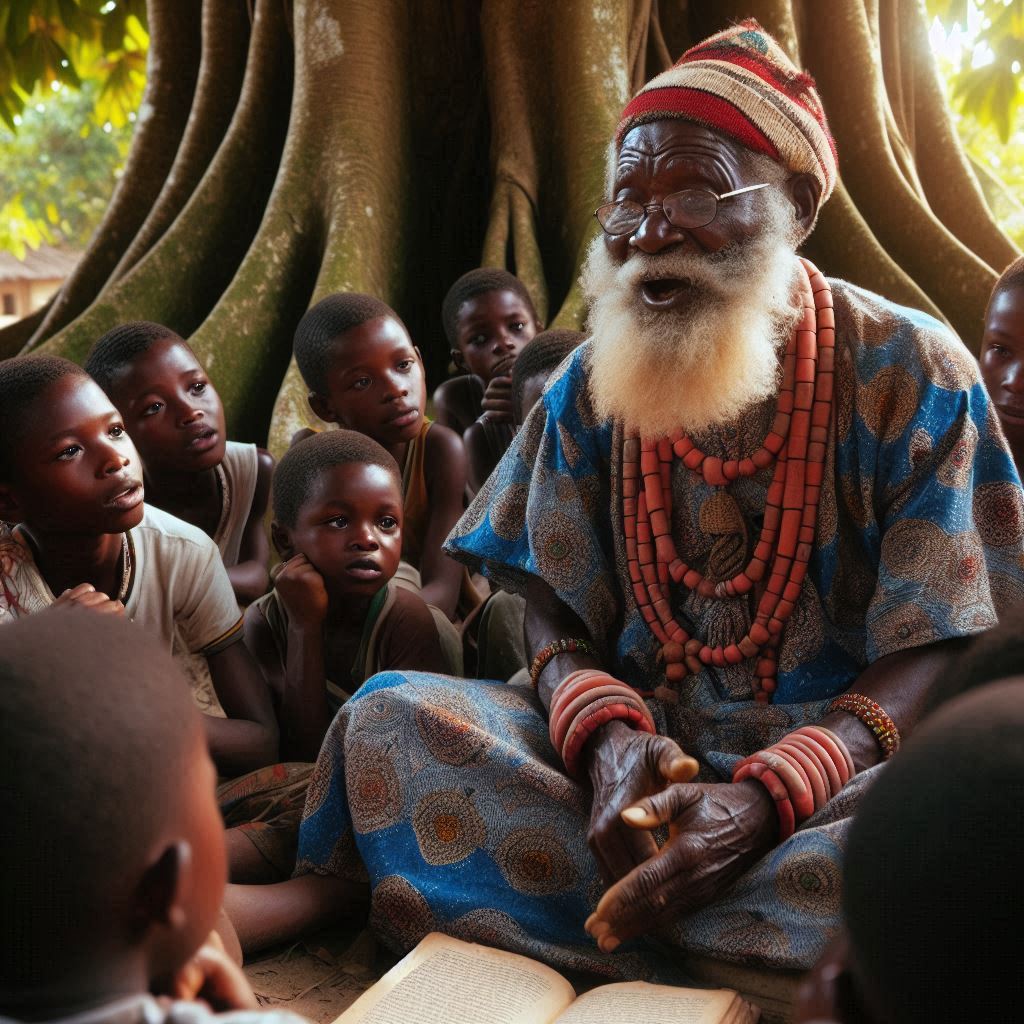Introduction
Nigeria, a melting pot of cultures, boasts a rich linguistic tapestry. With over 500 languages, it’s one of the most linguistically diverse countries globally.
These languages are pivotal in shaping Nigerian culture and identity, playing a crucial role in various aspects of life, including politics.
Nigeria’s linguistic diversity is astounding, encompassing three major language families: Afro-Asiatic, Nilo-Saharan, and Niger-Congo.
Each of these families further branches into numerous dialects and languages, reflecting the country’s diverse ethnic groups and histories.
Importance in Preserving Heritage
Languages serve as vessels of cultural heritage, preserving traditions, beliefs, and histories passed down through generations.
In Nigeria, languages encapsulate the essence of different ethnic groups, acting as a bridge between the past and the present.
In the realm of politics, language plays a significant role in mobilizing communities and shaping political discourse.
Politicians often leverage local languages to connect with constituents on a more personal and relatable level, especially in rural areas where indigenous languages predominate.
Language as a Tool of Inclusion
The recognition and promotion of indigenous languages in politics contribute to inclusivity and representation.
It allows diverse voices to be heard and empowers marginalized communities who may feel alienated by the dominance of major languages such as English and Hausa in political spheres.
Challenges and Opportunities
Despite the richness of Nigeria’s linguistic landscape, there are challenges to be addressed. Language barriers can hinder effective communication and participation in governance, particularly for those who speak minority languages.
However, these challenges also present opportunities for linguistic revitalization and cultural preservation efforts.
Language policy in Nigeria has been a subject of debate and contention.
While English serves as the official language and lingua franca, efforts have been made to promote indigenous languages through educational initiatives and cultural programs.
However, the implementation of these policies remains uneven across different regions.
In review, Nigerian languages are not just linguistic tools but repositories of cultural wealth and identity. Their role in politics underscores the importance of embracing linguistic diversity as a cornerstone of national unity and development.
By recognizing and valuing the multitude of languages spoken within its borders, Nigeria can truly harness the power of its linguistic heritage for a more inclusive and equitable society.
Role of Nigerian Languages in Politics
Historical Significance
In pre-colonial Nigeria, indigenous languages were pivotal in governance. Leaders communicated with citizens in their native tongues.
Traditional rulers relied on local languages to convey laws and administer justice. This fostered a sense of community and inclusivity.
The use of native languages ensured effective communication between rulers and the populace. It also preserved cultural identities and traditions.
Influence on Political Discourse
Nigerian languages continue to shape political discourse in contemporary times. They serve as tools for mobilization and persuasion.
Political rallies often employ local languages to connect with voters on a deeper level. This enhances the emotional resonance of messages.
Candidates leverage linguistic diversity to appeal to specific demographic groups. Speaking in local dialects fosters rapport and trust among constituents.
Communication in Governance
Language plays a crucial role in governmental affairs. Official documents and policies are often translated into multiple indigenous languages.
This ensures accessibility and inclusivity in governance. Citizens from diverse linguistic backgrounds can participate in the political process.
Furthermore, multilingualism promotes transparency and accountability in public institutions. It facilitates clear communication between officials and the public.
Challenges and Opportunities
However, the prominence of indigenous languages in politics also presents challenges. Language barriers can hinder effective communication and decision-making.
In a country with over 500 languages, linguistic diversity can be both a strength and a challenge. It requires careful navigation in political discourse.
Yet, this diversity also presents opportunities for cultural exchange and understanding. Embracing linguistic plurality enriches the political landscape of Nigeria.
Promoting Linguistic Diversity
Efforts to promote Nigerian languages in politics are underway. Some politicians advocate for the inclusion of native languages in official proceedings.
Educational initiatives aim to preserve and revitalize indigenous languages. This empowers citizens to participate fully in civic life.
Civil society organizations advocate for language rights and recognition. They highlight the importance of linguistic diversity in sustaining democracy.
In a nutshell, Nigerian languages play a vital role in politics, both historically and in contemporary times. They shape discourse, facilitate governance, and reflect the nation’s rich cultural heritage.
Efforts to promote linguistic diversity in politics are crucial for fostering inclusivity and strengthening democracy. By embracing indigenous languages, Nigeria can truly represent the voice of its diverse populace in the political arena.
Read: Scholarships for Christian Religious Studies Students
Language Policy in Nigeria
In Nigeria, language policy plays a critical role in shaping political representation and participation. Let’s delve into an overview of language policies and official languages in Nigeria, as well as examine their impact on politics.
Overview of Language Policies in Nigeria
Nigeria is a linguistically diverse country with over 500 languages spoken across its regions. The official language of Nigeria is English, inherited from its colonial past under British rule.
However, the country recognizes three major languages as national languages: Hausa, Igbo, and Yoruba.
Beyond these national languages, Nigeria’s language policy acknowledges the importance of promoting and preserving indigenous languages.
The government has implemented policies to support the use and development of native languages alongside English in various sectors, including education and administration.
Impact of Language Policy on Political Representation
Language policy in Nigeria has a direct impact on political representation.
The dominance of English as the official language can create barriers for individuals who are not proficient in English, limiting their ability to fully engage in political processes.
Furthermore, the emphasis on English in official settings can marginalize speakers of indigenous languages, leading to their underrepresentation in political institutions.
This lack of linguistic diversity can hinder inclusive governance and limit the perspectives and priorities brought to the decision-making table.
Impact of Language Policy on Political Participation
Language policy also influences political participation in Nigeria.
The reliance on English as the primary language for official communication can exclude segments of the population who are more comfortable expressing themselves in their native languages.
This language barrier may deter individuals from actively participating in political activities, such as voting, campaigning, and running for office.
As a result, certain communities may feel disenfranchised and disengaged from the political process, affecting the overall representativeness of Nigerian democracy.
Recommendations for Enhancing Language Policy in Nigeria
To address the challenges posed by existing language policies in Nigeria, several recommendations can be considered:
- Promote multilingualism: Encourage the use of multiple languages in official communications and government documents to accommodate linguistic diversity.
- Provide language support: Offer language training programs and resources to improve proficiency in English and indigenous languages among political actors and citizens.
- Ensure linguistic inclusivity: Take proactive measures to involve speakers of indigenous languages in political decision-making processes and leadership positions.
- Invest in language education: Prioritize the development and preservation of indigenous languages through educational initiatives and cultural programs.
- Conduct language impact assessments: Evaluate the effects of language policies on political representation and participation to inform future language planning and policy decisions.
By adopting these recommendations, Nigeria can foster a more inclusive and equitable political landscape that reflects the linguistic diversity of its population.
Language policy reform has the potential to enhance political representation and participation, ultimately strengthening democracy in Nigeria.
Read: Challenges in Teaching Christian Religious Studies
Challenges Faced by Nigerian Languages in Politics
The dominance of English as the language of governance and administration
In Nigeria, English serves as the official language for government affairs, including legislation, official documents, and communication among officials.
This dominance presents a challenge to Nigerian languages as it limits their presence and influence in political processes.
The preference for English in governance stems from the colonial legacy of British rule in Nigeria.
Since gaining independence in 1960, English has remained the primary language used in political institutions, creating a barrier for indigenous languages to participate actively in decision-making processes.
The widespread use of English in politics also reinforces social inequalities, as proficiency in the language is often associated with higher education and socioeconomic status.
This further marginalizes Nigerian languages, which are predominantly spoken by rural and less-educated populations.
Moreover, the emphasis on English in politics perpetuates a sense of cultural hierarchy, with indigenous languages perceived as inferior or less sophisticated compared to the official language.
This perception hinders the recognition and promotion of linguistic diversity within the country’s political landscape.
Transform Your Career with Expert Guidance
Get personalized mentorship consulting that’s tailored to your unique path. Our expert advice is actionable and exclusive.
Get StartedMarginalization of Indigenous languages in political spheres
Despite Nigeria’s linguistic diversity, indigenous languages face marginalization in political spheres due to various factors, including historical biases, institutional practices, and societal attitudes towards linguistic diversity.
One major challenge is the limited official recognition and support for indigenous languages in political contexts.
While Nigeria recognizes multiple languages as national languages, their status and use in governance remain minimal, with English serving as the dominant medium for communication and decision-making.
This marginalization of indigenous languages contributes to a sense of exclusion and alienation among speakers of these languages, who may struggle to fully engage in political processes that do not accommodate or value their linguistic heritage.
Furthermore, the lack of linguistic diversity in politics reinforces a homogenized view of Nigerian identity, neglecting the rich cultural tapestry woven by various ethnic groups and their languages.
This erasure of linguistic diversity perpetuates inequalities and hinders inclusive governance and representation.
Read: Impact of Christian Religious Studies on Nigerian Society

Uncover the Details: Graphic Design: Applied Art in the Digital Age
Delve into the Subject: Political Studies: Theory vs. Practice in Nigeria
Promoting Linguistic Diversity in Nigerian Politics
In Nigeria, a country rich in cultural diversity, languages play a pivotal role in shaping political discourse and fostering national unity.
Recognizing the significance of linguistic diversity, initiatives have emerged to elevate indigenous languages in political arenas.
These efforts aim to ensure that all citizens can actively participate in governance and express themselves in their native tongues.
Such initiatives not only uphold linguistic rights but also contribute to fostering inclusivity and strengthening national identity.
Elevating Indigenous Languages in Political Discourse
Various initiatives have been implemented to integrate indigenous languages into political discourse. One notable effort is the translation of official documents and proceedings into multiple languages.
This practice enables citizens from diverse linguistic backgrounds to access vital information and actively engage in political processes.
Additionally, there has been a push for multilingual debates and discussions in legislative chambers and public forums.
By accommodating different languages, these platforms empower marginalized communities and amplify their voices in decision-making processes.
Importance of Multilingualism in Political Unity
Multilingualism plays a crucial role in promoting national unity and fostering a sense of belonging among diverse ethnic groups.
Embracing linguistic diversity acknowledges the cultural heritage of each community and promotes mutual respect and understanding.
Inclusive language policies not only bridge communication gaps but also prevent the marginalization of linguistic minorities.
By providing equal opportunities for all languages to thrive, Nigeria strengthens its social fabric and promotes harmony among its citizens.
Initiatives for Inclusive Language Policies
Government agencies and civil society organizations have spearheaded initiatives to develop inclusive language policies.
These policies aim to ensure that all citizens, regardless of their linguistic background, can fully participate in governance and public life.
One approach involves the promotion of indigenous languages in education through the inclusion of local languages in school curricula.
By teaching children in their mother tongues, Nigeria preserves its linguistic heritage and equips future generations with the tools to engage meaningfully in civic affairs.
Challenges and Future Prospects
Despite progress, challenges remain in promoting linguistic diversity in Nigerian politics. Limited resources, inadequate infrastructure, and resistance to change hinder the implementation of inclusive language policies.
However, with continued advocacy and collaboration, these obstacles can be overcome. The future of Nigerian politics lies in embracing linguistic diversity as a source of strength and unity.
By promoting multilingualism and inclusive language policies, Nigeria can build a more inclusive and resilient democracy that reflects the aspirations of all its citizens.
In fact, the promotion of linguistic diversity in Nigerian politics is essential for fostering national unity and inclusive governance.
Through initiatives to elevate indigenous languages and develop inclusive language policies, Nigeria can uphold the rights of all its citizens and strengthen its social fabric.
Embracing linguistic diversity not only enriches political discourse but also reflects the true essence of a vibrant and pluralistic democracy.
Read: Renowned Nigerian Psychologists to Follow
Case Studies of Nigerian Languages in Political Contexts
One key aspect of Nigerian politics is the use of various languages in political campaigns, debates, and public discourse. Let’s examine some specific examples of how different languages are utilized in these contexts:
Yoruba Language
Yoruba is one of the major languages spoken in Nigeria, particularly in the southwestern region.
In political campaigns, Yoruba is often used to connect with the local population, as it helps to create a sense of cultural affinity and understanding between the politicians and the people.
Candidates who speak Yoruba fluently have an advantage in mobilizing support from this region.
Hausa Language
Hausa is another significant language in Nigeria, predominantly spoken in the northern part of the country. In political discourse, Hausa is employed to reach out to the Hausa-speaking population and convey political messages effectively.
Politicians who are fluent in Hausa have a better chance of connecting with the people in this region and gaining their trust and support.
Igbo Language
The Igbo language is widely spoken in the southeastern region of Nigeria. In political campaigns, Igbo is used to appeal to the Igbo-speaking population and express political ideology and promises in a way that resonates with them.
Candidates who communicate their messages in Igbo are more likely to garner support from this region.
Pidgin English
Pidgin English is a popular lingua franca in Nigeria, used by people from different linguistic backgrounds to communicate effectively.
In political debates and public discourse, Pidgin English is utilized to simplify complex political issues and ideas, making them more accessible to a wider audience.
Politicians who can speak Pidgin English well can connect with the masses and convey their messages in a relatable manner.
Role of Language in Shaping Political Narratives and Mobilizing Support
Language plays a crucial role in shaping political narratives and mobilizing support for political candidates. Here’s an analysis of how language is utilized in Nigerian politics:
Creating Emotional Connections
Language is used to evoke emotions and create connections with the electorate. Politicians strategically use language to appeal to people’s emotions, hopes, and dreams, forging a strong bond with the voters.
This emotional connection can sway people’s opinions and lead to increased support for a particular candidate.
Conveying Political Messages
Effective communication is key in politics, and language is the primary tool for conveying political messages. Politicians use language to articulate their vision, policies, and plans for the country, persuading the electorate to support them.
Clarity and coherence in language help to inspire confidence in the voters and rally them behind a political agenda.
Mobilizing Grassroots Support
Language is instrumental in mobilizing grassroots support for political campaigns. By speaking the language of the local population, politicians can effectively communicate their ideas and connect with the people at the grassroots level.
This connection fosters a sense of trust and solidarity, encouraging people to actively participate in the political process and support the candidate who understands their needs and aspirations.
Basically, Nigerian languages play a significant role in politics, influencing the way political campaigns are run, messages are conveyed, and support is mobilized.
By understanding the importance of language in political contexts, politicians can effectively engage with the diverse linguistic groups in Nigeria and build strong relationships with the electorate.
Gain More Insights: Mass Communication Degree: Pros and Cons Nigeria
Delve into the Subject: Networking Tips for Communication Studies Students
Uncover the Details: Public Speaking Tips for Communication Students
Conclusion
Nigerian languages wield immense influence within the political landscape, transcending mere communication to shaping ideologies and fostering unity.
Recapitulation of the Significance
In a nation as diverse as Nigeria, with over 500 languages spoken, each tongue represents a unique cultural identity. These languages are not just means of communication but symbols of heritage, connecting individuals to their roots.
In politics, Nigerian languages serve as vehicles for mobilization and persuasion. They enable politicians to reach out to diverse constituencies, speaking directly to the hearts and minds of the people.
Moreover, Nigerian languages facilitate the dissemination of political ideologies and agendas. When messages are delivered in the language of the people, they resonate more deeply, fostering a sense of belonging and understanding.
Furthermore, Nigerian languages play a crucial role in preserving traditional governance systems. Many indigenous communities still rely on their native languages for decision-making processes and conflict resolution.
Call to Action: Promoting Linguistic Diversity
To harness the full potential of Nigerian languages in politics, concerted efforts must be made to promote linguistic diversity and inclusivity within political structures.
Firstly, there is a need for policies that recognize and protect the linguistic rights of all Nigerians. This includes the provision of multilingual education and the use of indigenous languages in official proceedings.
Additionally, political parties should prioritize linguistic diversity in their outreach strategies. By embracing and incorporating various languages into their campaigns and manifestos, parties can foster greater inclusivity and representation.
Furthermore, there should be initiatives to encourage the translation of political materials into multiple languages.
This will ensure that vital information reaches every corner of the nation, empowering all citizens to participate fully in the democratic process.
Moreover, efforts to preserve and revitalize endangered languages should be supported. Language revitalization programs can help communities reclaim their linguistic heritage and strengthen their cultural identity.
In closing, Nigerian languages are not just tools of communication but pillars of identity and unity.
By embracing linguistic diversity and inclusivity, Nigerian politics can become more representative, equitable, and resilient.
As we move forward, let us recognize the power of language in shaping our political landscape and work together to build a Nigeria where every voice is heard, regardless of the tongue in which it speaks.




